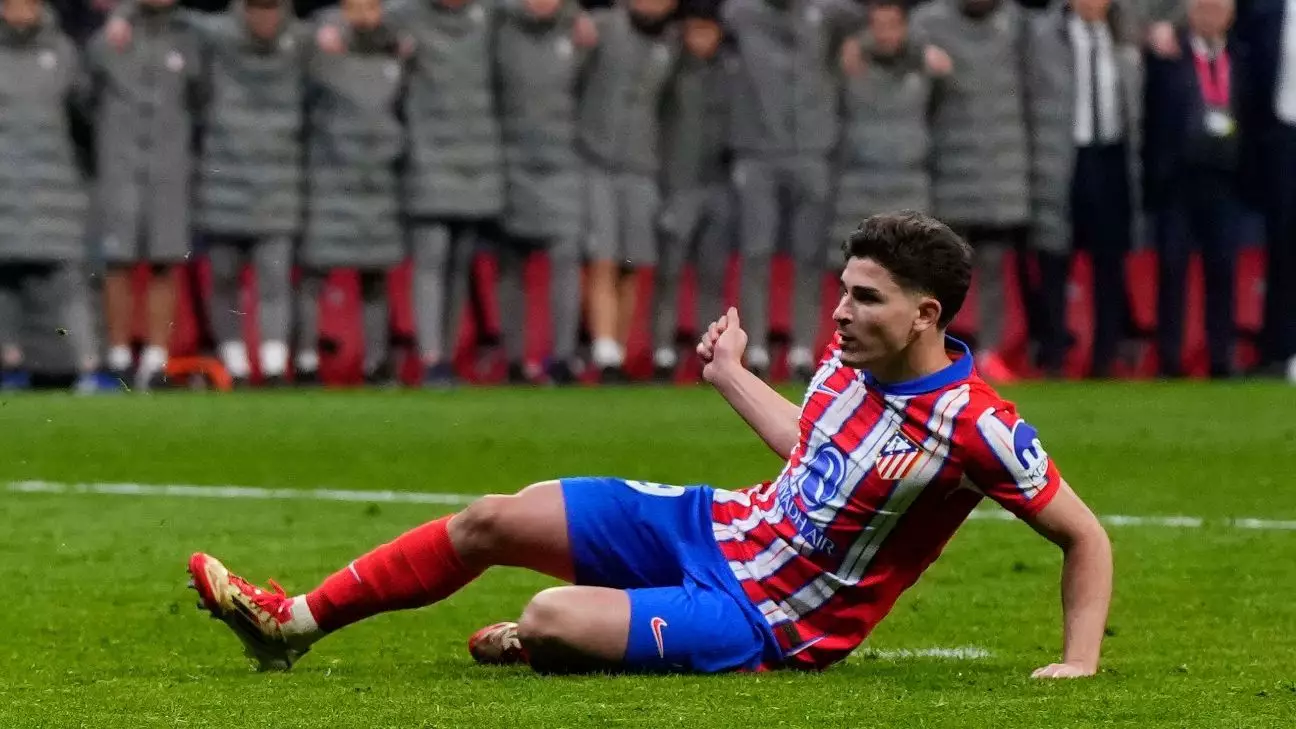The world of soccer is no stranger to controversial moments, especially when it comes to the nuances of penalty kicks. A recent incident involving Julián Álvarez of Atlético Madrid exemplifies the need for clarity in the rules governing this critical aspect of the game. When Álvarez’s inadvertent double touch during a penalty in a crucial Champions League shootout against Real Madrid was disallowed, it sparked a wave of debate about the fairness of the regulations. Now, with the International Football Association Board (IFAB) implementing new guidelines, the future of penalty kicks may look significantly different, making this a pivotal moment for players and referees alike.
Accidental Double Touch: A Game-Changer
Previously, when a player accidentally touches the ball twice during the execution of a penalty kick, the consequences were both dire and often ambiguous. The general consensus that arose from Álvarez’s unfortunate slip—where he inadvertently struck the ball again with his own foot—highlighted a significant gap in the clarity of soccer’s rulebook. The reaction from the soccer community emphasized the belief that the call was overly harsh, given the nature of the accidental touch. With the new rules established by IFAB, which now clearly state that if a penalty is scored after such a double touch, it should be retaken, the balance of power shifts back to the player.
A Move Towards Fairness
The decision to amend the regulations thus signals a noteworthy step towards enhancing fairness in the game. IFAB, recognizing that situations like Álvarez’s are rare and not adequately covered under Law 14, has made a critical move that restructures the way accidental touches are judged. By affirming that a penalty scored under these circumstances must be retaken, the organization sends a strong signal that soccer is committed to equitable competition. The provision that a missed penalty due to double touch will not be retaken, however, still holds, which ensures that players remain accountable for their actions while acknowledging the nuances involved in high-pressure situations.
The Ripple Effect on Future Matches
This reformation not only affects the clubs currently in UEFA competitions but also extends to future events, like the Club World Cup scheduled to take place in the United States this June. Atlético Madrid, having been directly impacted by the previous ambiguity in the rules, stands to benefit from this fresh directive. As matches such as Germany vs. Portugal draw closer, the new regulations will be put to the test, offering opportunities for discussion and analysis that can further enrich the soccer experience for fans and athletes alike.
The revised penalty kick regulations showcase soccer’s evolving nature, driven by a determination to maintain integrity within the sport. By addressing inconsistencies and affirming player rights in circumstances where accidents occur, IFAB not only enhances the game but also fortifies its own credibility as an authority. This transformative clarity may not solve every conflict on the pitch, but it certainly paves the way for more just outcomes in one of the most thrilling—and contentious—aspects of soccer.

